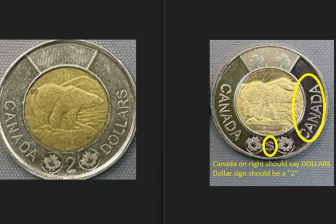Google and the Canadian government have struck a framework for a deal over the Online News Act, a senior government source and multiple reports suggest.
The official spoke to Global News on background as they weren’t authorized to discuss the matter publicly. Other media outlets reported an agreement reached by the tech giant and Ottawa on Wednesday.
Heritage Minister Pascale St-Onge is expected to speak with reporters at some point Wednesday.

The Online News Act, which became law in June, is set to take effect sometime in December. It will force digital giants like Google and Meta to negotiate deals with Canadian news publishers to compensate them for work that is shared or otherwise repurposed on their platforms.
Google, which is owned by parent company Alphabet, has expressed its concerns to the government and said if they’re not addressed, it would remove news links from its search engine by year’s end.
The company is taking issue with the formula in the draft regulations that would determine whether a company contributes enough of its total estimated Canadian revenue to media outlets to qualify for an exemption from the law.

Federal officials have estimated Google would need to offer about $172 million per year to meet that threshold, while the annual price tag for Facebook would be $62 million.
Google said that figure is much higher than the $100 million it was expecting based on a previous estimate that a senior official with the Heritage Department had given a House of Commons committee last December.
Meanwhile Meta, the parent company of Facebook, has said the legislation is based on the false premise that it and others unfairly benefit from news content.
Meta moved to end Canadian-created news availability on its platforms in Canada. Many Canadian publishers, including Corus Entertainment – the parent company of Global News – responded by suspending advertising on Meta platforms.

St-Onge has previously said Google has kept a more open dialogue with the government, and that she had heard the company’s concern about knowing how much they’ll have to pay under the law.
Paul Deegan, head of News Media Canada, a lobby group for Canada’s newspapers and magazines, said in an Oct. 12 statement it agrees with many of the issues raised by Google.
Deegan’s welcoming of Google’s concerns contrasted with his comments in February, when he accused the company of “bullying” after it carried out a short-lived test that blocked news access to a small percentage of Canadian users.

The Canadian news media landscape has changed significantly over the past decades. Publishers say advertising revenue has been eaten up by U.S. tech giants, forcing them to reduce operations in what industry watchers say will negatively impact Canadian society and democracy.
— with files from The Canadian Press
© 2023 Global News, a division of Corus Entertainment Inc.




